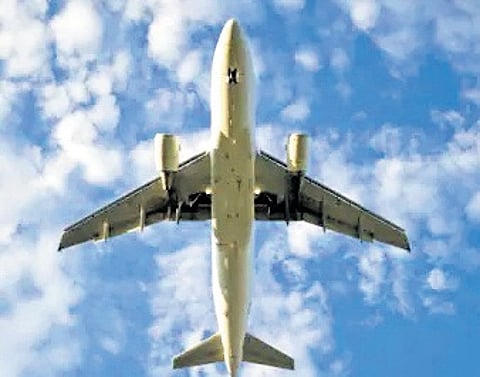

NEW DELHI: Airspace must never be weaponised in conflicts, and civilian aircraft should never become casualties—deliberate or accidental—of military operations, said Nick Careen, Senior Vice President of Operations & Security at the International Air Transport Association (IATA).
Speaking at the IATA Annual General Meeting on Tuesday, Careen said that governments worldwide are working together to enhance coordination and establish clear global protocols to protect civil aviation in conflict zones.
“Governments must step up, enhance intelligence-sharing, and establish clearer global protocols to prevent such tragedies and safeguard civilian aviation,” Careen said.
Citing rising threats to flight safety, Careen said, “There needs to be a better balance between connectivity and geopolitical issues that always puts national security and international law in the forefront. Instead, we see airspace used as a retaliatory tool.”
The fallout from global conflicts is already hitting the aviation sector hard. In 2023, two civilian aircraft were shot down in Kazakhstan and Sudan, claiming 38 lives. The ongoing Russia-Ukraine war continues to disrupt European airspace, with up to 2,000 flights being rerouted or cancelled on an average summer day due to closed Ukrainian airspace and sanctions on Russia. That’s about 6% of total daily network traffic, Careen noted. Another 1,500 flights are rerouted daily to avoid restricted airspace, causing logistical chaos and increased fuel consumption.
Conflict zones in West East, especially around Israel, have added to the crisis. In October 2024, multiple flights had to take emergency actions after encountering Iranian missiles aimed at Israel. “The presence of missiles in active flight corridors raised serious safety issues,” Careen said.
These diversions not only impact safety but also have steep financial and environmental consequences, often making routes economically unviable for airlines.
However, the industry’s troubles aren’t limited to geopolitical conflicts. A severe shortage of aircraft and engines is crippling operations globally. As many as 1,100 aircraft under 10 years old—3.8% of the global fleet—are currently grounded due to engine issues, a sharp rise from just 1.3% before 2019. Most of these groundings are linked to PW1000G engine problems, Careen revealed.
Better co-ordination
When asked on the hailstorm incident on May 21 in which an IndiGo Delhi-Srinagar flight was involved, Nick Careen, Senior VP at the International Air Transport Association, said, “The learning from it would involve better co-ordination. I am sure that’s something that would be under consideration.”